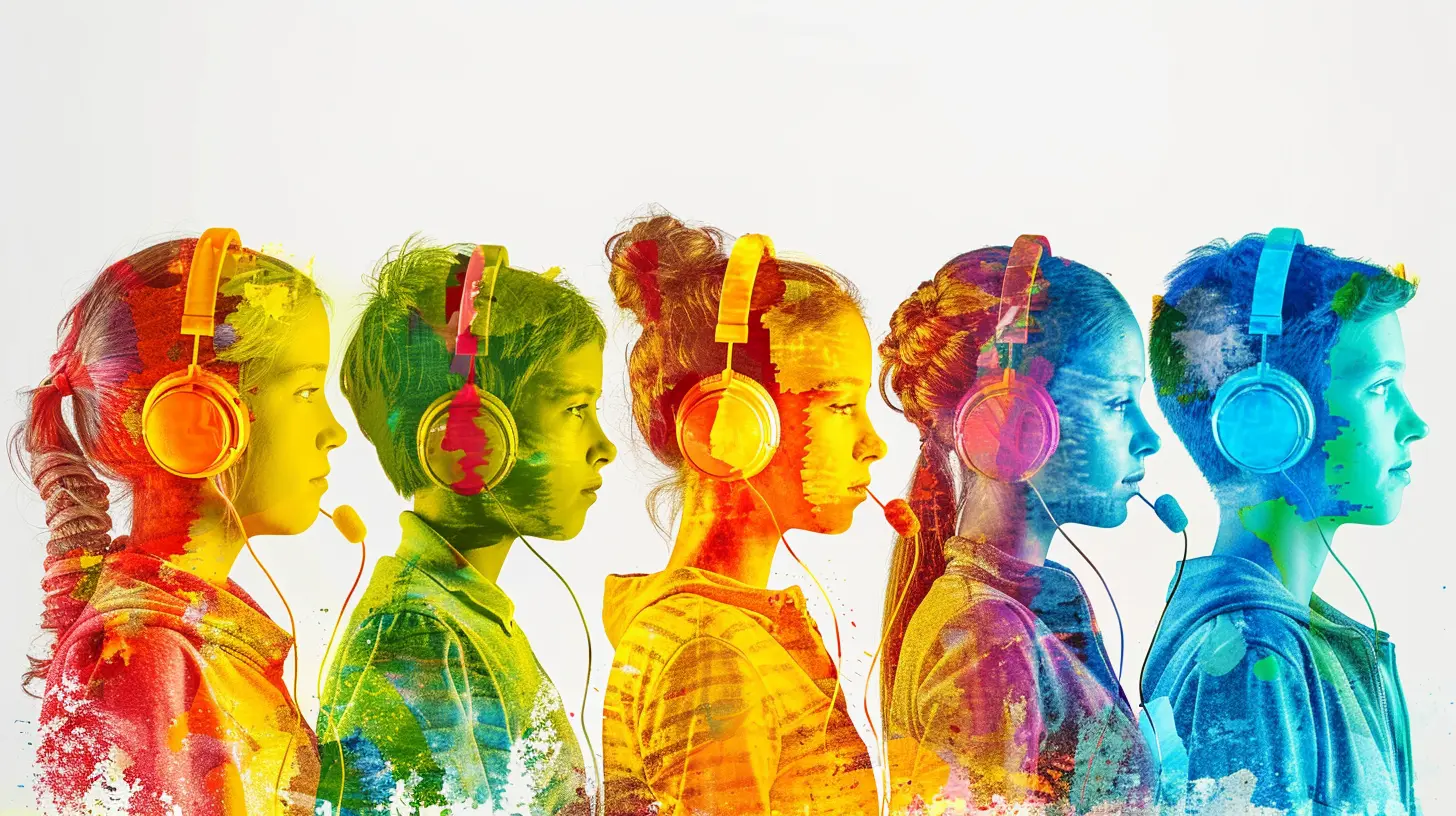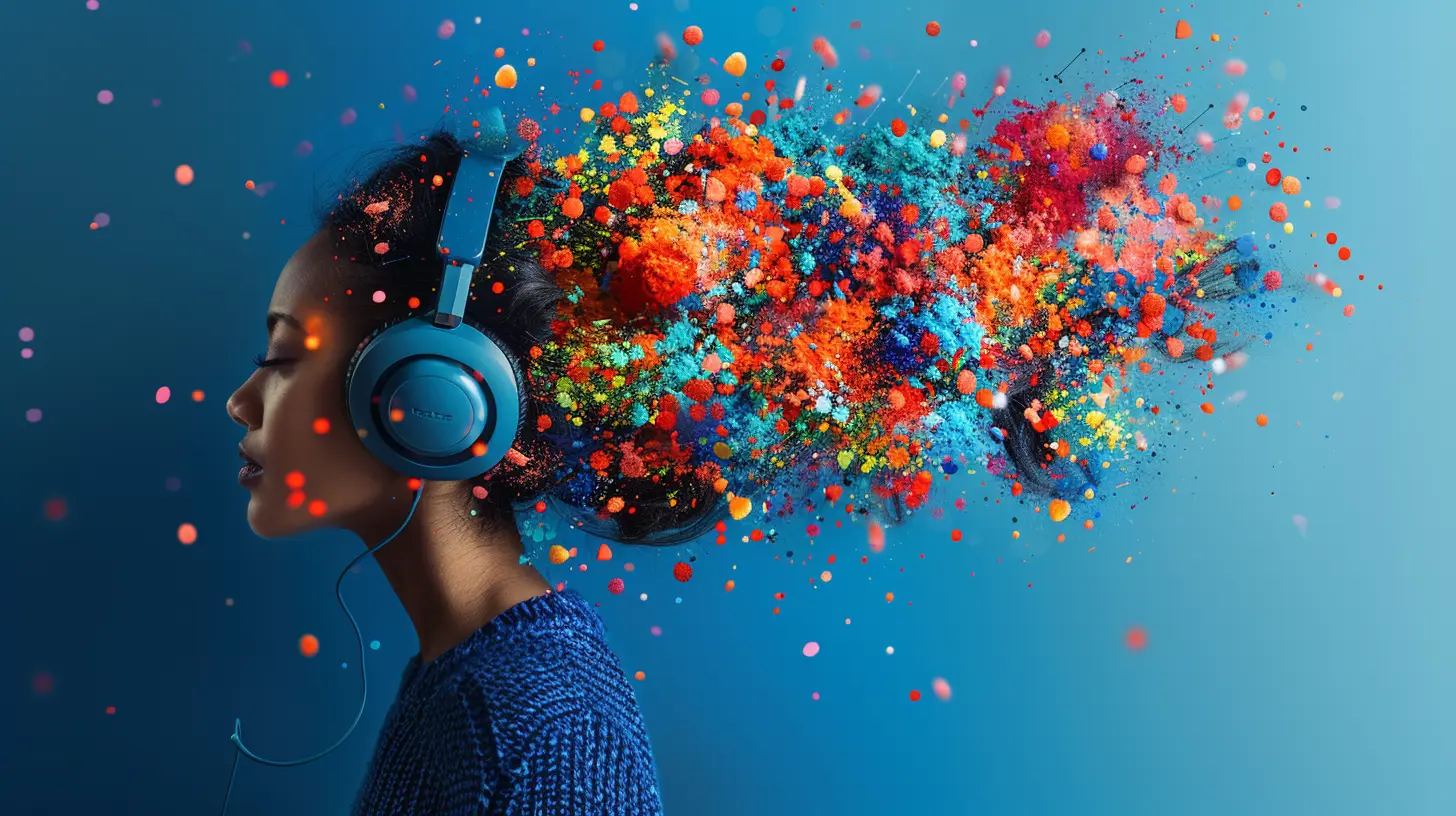Auditory Learners Thrive: Harnessing the Power of Sound
8 September 2025
Ever find yourself remembering every word of a song but forgetting what you just read five minutes ago? Or perhaps you ace lectures but struggle with textbooks? If that’s the case, you might just be an auditory learner—and guess what? That’s something to be proud of!
In this noisy world filled with podcasts, audiobooks, voice notes, and online classes, auditory learners are finally getting their moment in the spotlight. This article is for all the students, educators, and lifelong learners who want to embrace and maximize their auditory superpowers. Grab your headphones—this one's made for your ears. 🎧
What Does It Mean to Be an Auditory Learner?
Let’s break it down.Auditory learners absorb information best when they hear it. Instead of relying heavily on reading or visuals, they thrive in settings filled with spoken words—discussions, debates, storytelling, lectures, and even rhythmic patterns like rhymes.
These learners often:
- Remember information better when they hear it
- Prefer listening to reading
- Are good at explaining things aloud
- Can follow verbal instructions easily
- Enjoy music or sound in the background while studying
Sound familiar? If you're nodding as you read, you might just be wired to learn through sound.
The Science Behind How Auditory Learners Tick 🎧
Here’s a fun fact: Everyone's brain is unique, but research shows that our brains process information through different sensory channels—visual, auditory, kinesthetic, etc. For auditory learners, the auditory cortex plays the lead role in making sense of information. It’s like their brain has an internal podcast they tune into constantly.When auditory learners hear information, their brains light up, forming connections that make recall easier and more effective. This doesn’t mean they can’t learn from reading or doing—just that sound is their strongest suit.
Identifying an Auditory Learner (Clue: It’s Not Just About Talking A Lot)
Sure, auditory learners love to talk. (Guilty as charged!) But there’s more to it. Here are some classic signs:- They remember names better than faces.
- They repeat information out loud to remember it.
- They talk through problems to solve them.
- They thrive in discussions and group work.
- They love music and often connect emotionally to sound.
Whether you're a student trying to understand your learning style or a teacher spotting patterns in class, these clues can help pinpoint auditory learners in action.
Why Auditory Learners Struggle in Traditional Classrooms
Let’s be honest—most schools are built for visual learners. Think textbooks, worksheets, PowerPoint presentations. It’s all a lot of reading and writing.For auditory learners, this can feel like trying to read with your ears. They might drift off during silent reading time or struggle to take in static content. And when it comes to timed written tests? Yikes.
The key issue isn't intelligence—it’s mismatch. They learn differently, not worse. And once we match their learning style with the right tools? Magic happens.
How Auditory Learners Can Level Up Their Learning Game
Alright, here's where things get exciting. If you're an auditory learner (or teaching one), it's time to lean into your strengths and tweak the way you soak up knowledge. Here’s how:1. Turn Text into Talk
Reading a textbook? Try reading it aloud. Better yet, record yourself reading it and play it back. Hearing your own voice can work wonders—like your brain giving itself a pep talk.2. Study with Soundtracks
Listening to soft instrumental music or familiar background noise can help you focus. Think lo-fi beats or classical playlists. Music isn’t just entertainment—it’s a learning tool.3. Use Voice Memos and Audio Tools
Forget endless notes. Whip out your phone and record summaries, ideas, and questions. Play them back while walking, cooking, or commuting. Boom—study time, anytime.4. Join or Form Study Groups
Bounce ideas off others. Engage in discussions. Challenge each other with questions. For an auditory learner, saying it out loud helps lock it in.5. Narrate While You Work
Doing math? Explain each step aloud. Writing an essay? Talk through your points as if you’re explaining them to a friend. You’re not weird—you’re wired for sound.6. Listen to Podcasts and Audiobooks
Swap out your textbook (sometimes) for learning-focused audio content that aligns with your syllabus. There’s probably a podcast out there covering exactly what you’re studying.Tools & Tech That Amplify Auditory Learning
We live in a golden age for auditory learners. There’s an app for everything—and many of them are perfect for tuning into your best learning self.Here are some MVPs:
- Voice Dream Reader – Converts text into natural-sounding speech.
- Audible – Audiobooks galore, from Shakespeare to physics.
- Speechify – Reads any text aloud with adjustable speech speed.
- Podcast Addict – Stay informed, inspired, and educated.
- Google Docs Voice Typing – Say it, don’t type it.
It’s not about replacing traditional methods. It’s about adding layers that sync with how you learn best.
For Educators: Teaching Strategies That Hit the Right Notes
Teachers—if you want your lessons to stick with auditory learners, speak their language. Here’s how to do it:Embrace Verbal Instruction
Go beyond written instructions. Say it aloud, explain it, and if possible, record it. Your auditory learners will thank you.Encourage Discussion & Peer Teaching
Student-led discussions are gold. Let auditory learners explain concepts to others—it helps both parties and reinforces their understanding.Incorporate Sound into Lessons
Bring in audio clips, music, rhymes, or rhythm-based memory techniques. Even a witty jingle can help solidify a tough concept.Mix Up Assessment Styles
Try oral presentations, podcasts as assignments, or group debates. Not every assessment has to be on paper.Busting Myths About Auditory Learning
Time to tackle some misconceptions that really need to be shown the door:Myth 1: “They should learn to read better instead.”
Nope! They can read just fine. But listening is their power zone. We don’t tell runners to stop running and start swimming, right?
Myth 2: “Auditory learners are just talkative.”
Talk isn’t noise—it’s processing. Speaking helps them understand and remember. It’s active learning at its best.
Myth 3: “All kids need the same approach.”
Cookie-cutter education? No thanks. One size does not fit all, and honoring learning differences is actual teaching gold.
Real-Life Careers Where Auditory Learners Shine
Auditory learners often excel in careers where communication, listening, or sound are central. Think about it:- Teaching – You talk, listen, explain, and engage.
- Law – Arguing a case is a verbal art form.
- Counseling & Therapy – Listening deeply is the job.
- Broadcasting/Radio/Podcasting – Literally built on sound.
- Music & Performing Arts – No surprise there!
The world needs people who hear others—and themselves—clearly. Auditory learners bring that skill naturally.
Final Thoughts: Hearing Is Believing
Here’s the deal: if you're an auditory learner, your brain has its own rhythm, its own melody. And when you work with it, not against it, amazing things happen.So next time someone tells you to “just read more” or “stop talking so much,” smile and nod—then go ace that exam, record that podcast, or absolutely crush that presentation.
Learning isn’t one-note. And for auditory learners, life sounds better when the volume’s up.
all images in this post were generated using AI tools
Category:
Learning StylesAuthor:

Olivia Lewis
Discussion
rate this article
1 comments
Uzi Clarke
This article beautifully highlights the unique strengths of auditory learners. It reminds us of the importance of sound in education, encouraging us to create richer, more engaging auditory experiences for all students.
September 24, 2025 at 3:00 AM

Olivia Lewis
Thank you for your thoughtful comment! I'm glad you found the article resonates with the importance of enhancing auditory experiences in education.


